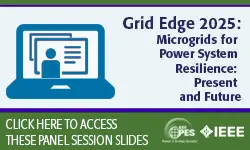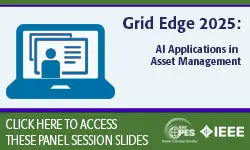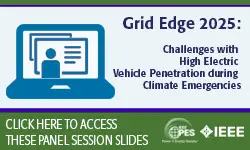-
Members: FreePES
IEEE Members: $10.00
Non-members: $20.00Pages/Slides: 30
Panel Session
03 Aug 2020
Multi-energy systems integration is an emerging way of reducing carbon emission, since the power system, heat system, and gas system, are strongly complementary in terms of efficiency, controllability, and flexibility among various processes such as energy generation, transmission and distribution, conversion, storage, and consumption. E.g., it is very expensive to store electrical energy while thermal and gas storage are relatively inexpensive. It is very costly to transmit heat but electricity can easily be transmitted over long distances with small losses. New devices are available for the integration of multiple energy systems such as heat pumps, electric boilers, combined heat and power plants, heat storage units, and information technology associated with these devices. The widespread use of such devices and smart scheduling would enable flexible energy flows between different systems. Integrating these energy systems thus has great potential of exploiting the flexibility of energy systems to better accommodate renewable energy and achieve a low carbon energy system.
Multi-energy systems integration has been a hot topic all over the world in recent years, from both theoretical and practical perspectives. This panel will address this promising and dynamic area of research and development while focusing on the new theoretical insights, innovative techniques and practices experiences on low carbon multi-energy systems.
Multi-energy systems integration has been a hot topic all over the world in recent years, from both theoretical and practical perspectives. This panel will address this promising and dynamic area of research and development while focusing on the new theoretical insights, innovative techniques and practices experiences on low carbon multi-energy systems.
Chairs:
Ning Zhang
Primary Committee:
Energy Development & Power Generation (EDPG)


